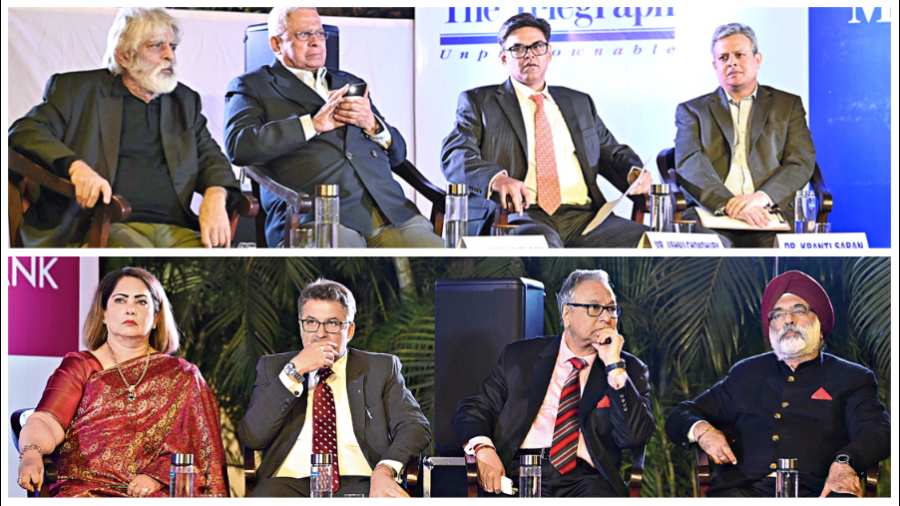A war of words played out at Bengal Club on Friday evening as a panel debated the motion Merit has no value in India.
In a closely fought contest, the motion was defeated in the end. Merit, the audience concurred, still means something in today’s India.
Actor Jayant Kripalani started the arguments at the Bengal Club debate held in association with The Telegraph.
“A watch company was contracted to repair the Morbi bridge in Gujarat though it had no previous experience in the field. When the bridge collapsed, 141 people died,” said Kripalini, speaking for the motion.
He argued that the watchmaking company could get the contract because somebody without merit thought the company deserved the work. He also said: “merit has no value in India if you are from a lower caste or are a woman or a Muslim”.
Ex-banker Ratnabali Kakkar was the first to speak against the motion. She cited examples of younger generations in the business families who launched start-ups or were taking the business into newer areas. Ratnabali said: “scions of the major business houses are taking the businesses away from the core family business. They are boldly going into technological areas and start-ups.”
Former Tripura governor and BJP leader Tathagata Ray, speaking for the motion, blamed reservations in government jobs and educational institutes for not letting meritocracy work. “Narrow political interests dictated terms because of which merit has no value,” he said.
Advocate Aditya Sondhi gave his own example while speaking against the motion. “My father was a Partition migrant. I was a first-generation lawyer in the family, but I became a senior counsel at the Karnataka High Court at age 38. When I started practicing, everyone told me that I was not a Kannadiga and it would be difficult for me there,” he said.
Speaking for the motion, Advocate Jishnu Chowdhury, who practices law at Calcutta High Court, asked Sondhi whether anyone could go to Bishop Cotton School in Bangalore, Sondhi’s alma mater.
Chowdhury also spoke against reservations. “Reservation or affirmative action is the antithesis to meritocracy,” he said.
Former bureaucrat Jawhar Sircar, speaking against the motion, said someone might give someone else an entry but everyone has to rise by virtue of their own merit.
Kranti Saran, head of the department of philosophy at Ashoka University, spoke for the motion. “What we have made of merit in India undermines democracy,” he said.
Speaking last was former diplomat Gurjit Singh who spoke against the motion. “When I was in Sri Lanka people there spoke highly about India and said that you are from a country that values merit and diversity. When I was in Africa people there said they want to emulate India because we give education, democracy and pluralism,” he said.
